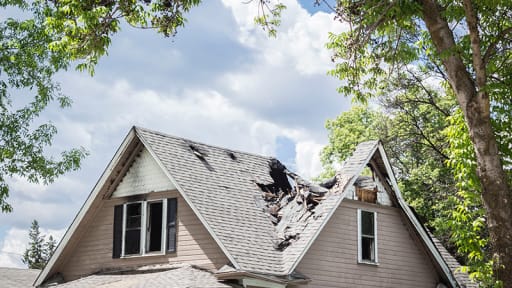What does Landlord Insurance cover?
Posted by David S. on 6th Jun 2023

A landlord insurance policy is a comprehensive tool that helps to protect landlords from very specific potential losses. The type of coverage obtained with landlord insurance varies. What you can expect is to have the option of adding insurance for property that protects from physical loss, liability, income loss, and a variety of add-on insurances to customize your policy to fit your needs. Let's explore.
Rental Property Manager Coverage - They Are Not All the Same

Just like with health insurance or auto insurance, the type and quality of coverage will change from one insurance company to the next. For that reason, be sure to shop around, but start with a clear understanding of what type of coverage you need and how much coverage you need to put into place.
Property Damage and Loss
Insurance for income property offers coverage for physical loss and property damage. The physical loss includes catastrophic events such as a fire, tenant damage to a unit or house, storm and lightning damage, and in some cases, vandalism is covered too.
Questions to Ask Yourself include:
- How much coverage do you need if the building is a total loss?
- How much coverage do you need if one unit is damaged, but other tenants must vacate their units?
- Do you need income replacement in the event of a total or partial loss?
- How much deductible is cost effective for your business and income?
- Are you able to be a DIY landlord? If so, some of the costs involved might be less.
Liability Insurance
If you have a lender they will insist on a certain level of coverage both in terms of physical damage and liability insurance. Liability insurance helps to protect you when someone sues you because of an issue with your property. The person suing you could be a tenant, a tenant visitor, or a complete stranger from the street. It is very difficult to pinpoint how much liability insurance you need. Ask yourself the following questions, talk with a legal advisor, and plan a trip to a financial planner. These professionals will help you understand a little more of the "what ifs."
- What is adequate coverage for medical fees when you own a rental property?
- How much insurance do I need in case of death - funeral, wrongful death cases, etc?
- How much coverage is realistic if a liability case goes to trial?
- What can you do as a landlord to reduce the risk of a liability claim?
- Do you need additional insurance if you work on your own property?
Loss of Income - Catastrophic events do not necessarily stop your mortgage payments

Do you need to have coverage to replace your rental income in the event that your property is damaged to the point where it cannot be rented for six months or a year? What about events that require total loss and replacement?
Pay close attention to policy language. Some insurance companies try to save money by offering reduced coverage. Look for escape words and phrases such as, in the event of, except when, most of the time, etc. these are legal phrases that are red flags. If you are working with a financial advisor, have them review your policy too.
The idea behind having landlord insurance is to provide protection for landlords. When you are a property owner and especially when you are a rental property owner, the risk you face goes upwards. Your goal is to keep your financial future bright.
- The cost of rental property manager coverage can be recaptured through rental fees. However, remember that rent is set based on what is acceptable in the neighborhood and the availability of similar units.
- You do not have to accept the level of insurance required by a lender. You can ask for more coverage or even additional coverage. The bank is interested in protecting their interest not specifically yours. Consider your own needs when shopping for insurance.
- There are plenty of DIY opportunities when you own rental properties. DIY repairs help to save money, which increase your rental profits.
About The Author
David S. loves to tell stories. He came from a fishing family so storytelling is likely genetic. His writing style translates easily to both blog and article formats. He is a patient writer who takes the time to understand your project. David writes a great deal about home living. His favorite place in the world is his home. He has a vast knowledge of antiques, art, and deep love of cooking. He likes to entertain and is the master of small parties and intimate dinners. They say home is where the heart is and they happen to be correct.
The articles and other content contained on this website/blog are provided for informational purposes only and should not be relied upon for any purposes. While it is our goal to provide you with up-to-date, relevant and useful information on a wide range of topics, we make no representations or warranties of any kind, whether express or implied, concerning the reliability, suitability, completeness or accuracy of any of the information made available on this site. The articles and information contained on this site are not intended to provide legal, accounting or other professional or business advice and should not be treated as a substitute for the advice of a professional with knowledge of the facts and circumstances of your specific situation. By accessing this site, you agree that you will not seek to hold E.C. Barton & Company or any of its affiliates liable for any losses or unanticipated costs or assert any other claim based on your use of this site or on the reliance on the content contained herein.


